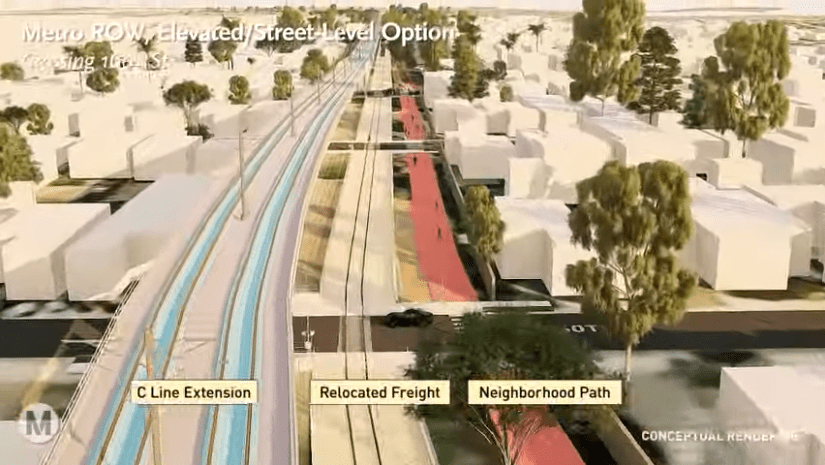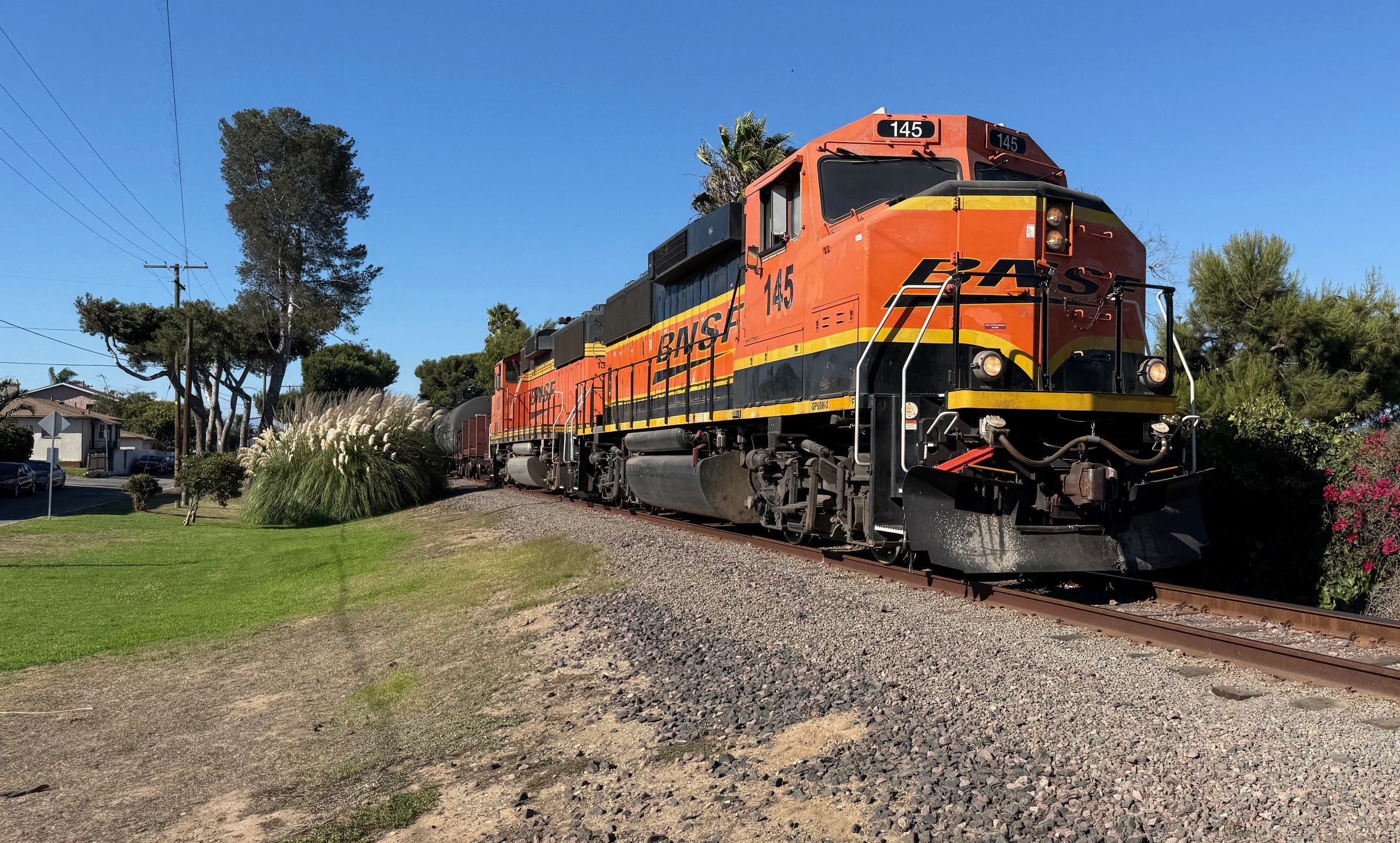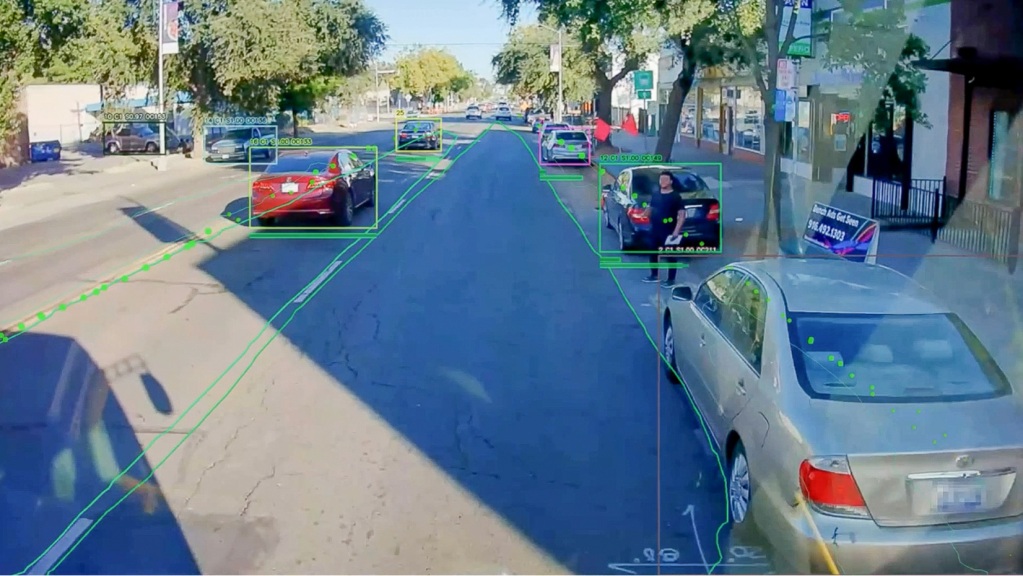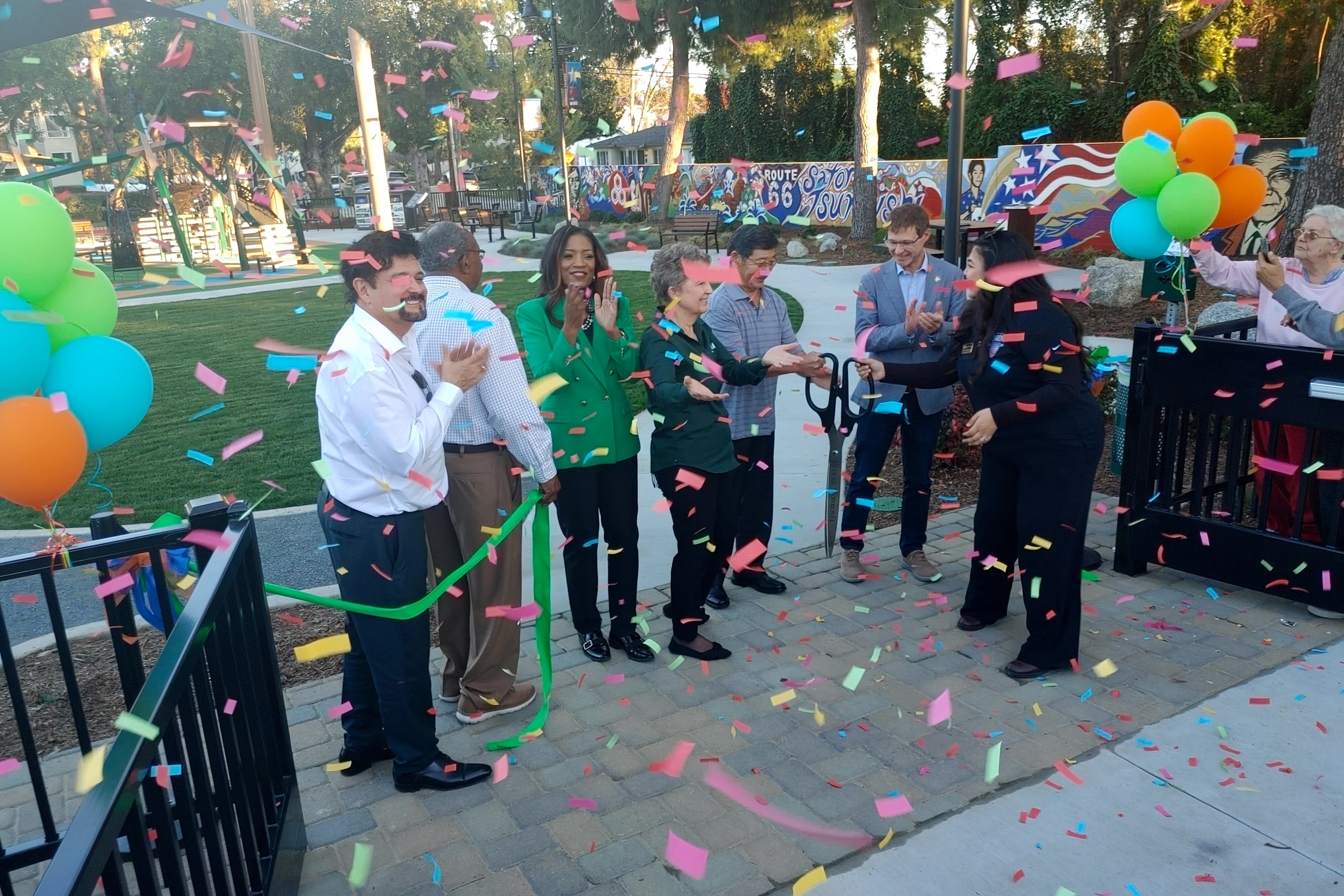Today on the Streetsblog Network, we bring you a post from Greater Greater Washington
in which a bus and a bicycle have a bad encounter, leading to a
discussion about windshield perspective (that bus has a mighty big
windshield) and sharing the road. Antonio López writes:
Bus and bike (not the ones in the story) coexisting in DC. Photo from WABA.
I
took the S bus down 16th Street yesterday. As the bus driver was coming
upon the stop at 16th and W, he drove up next to a bicyclist who was
also traveling southbound, to the right of the bus. The bus driver
began honking aggressively and pulled more to the right, dangerously
close to the cyclist. This put the cyclist in danger of becoming pinned
between the bus and the curb. Fortunately, the bus driver relented at
the last moment and allowed the bicyclist to move ahead of him, but not
before scaring the bicyclist and compromising her ability to ride
safely. I saw her swerve dangerously close to the bus and heard her
scream, "I'm on a bicycle!"However, over the prior six blocks, the driver waited
patiently behind at least four cars illegally parked in the far-right
lane. Their drivers were sitting inside, their vehicles idling. But not
once did he bother to honk at them, however civilly, or otherwise stake
a claim to the occupied lane.
There's a great thread growing out of
this post in which various points of view on sharing the road come up,
including a proposal from a guy named Lance whose solution is -- not
sharing it. Asking the odd rhetorical question "Is it even possible for
a cyclist
to really adhere to all the rules of the road?" Lance says we should
consider banning bikes from downtown streets during rush hours (sound familiar?).
That draconian suggestion got this reply from another commenter:
Nosituation will ever be perfect, but Lance's solution is to ban bikes.That's fine, but I can tell you that the laws will still be broken. Isee it as a great example of why comprehensive, independent cyclinginfrastructure has emerged as a necessary component of any responsiblecity planning. Separate, but equal. Separate, dedicated lanes; equal,in that those lanes are created by chipping away at car sewers (whichcalms down traffic, as many studies have shown). Ultimately, we as acity and region have to ask ourselves whether we want to embracemultimodalism, and if we really believe that adding exclusive vehicularcapacity is really the answer. It may be, but judging from what 495probably looks like right now, I'd say bike-free zones aren'tnecessarily going to be the bee's knees for the Hummer set.
Interesting stuff, and a great example of the kind of vital debate that is happening around the country on our member blogs.
More from around the network: Bike Commuting in Columbus
has a post from a woman who would like to use her bike for errands, but
feels that recreational cyclists have created an unsafe situation for
everyone by flouting traffic rules. Transit Miami
has an open letter to the city's leadership, challenging them to
implement the Miami 21 plan for smart development in that city. And Cincy Streetcar Blog,
in defense of transit subsidies, points out just how heavily subsidized
General Motors is at this point -- as are the streets that GM cars
drive on.






